“Anabolic action of PTH regulated by the β2-adrenergic receptor”
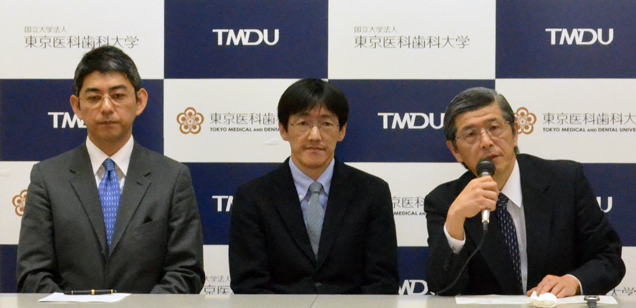
Masaki Noda
Professor, Department of Molecular Pharmacology, Medical Research Institute (right)
Yoichi Ezura
Associate Professor, Department of Molecular Pharmacology, Medical Research Institute (center)
Tadayoshi Hayata
Assistant Professor, Department of Molecular Pharmacology, Medical Research Institute (left)
Points
| 1) | Promotion of bone formation in osteoporosis treatment is still a major issue. Only available drug is PTH but its usage is restricted to 1.5 years and medical cost is very high. Thus, mechanisms of PTH action should be elucidated but this is still incompletely understood. We identified that beta 2 adrenergic receptor (b2AR) is required for full anabolic action of PTHR. |
| 2) | Osteoporosis proceeds in bedridden patients and agravity situation. These pathophysiology involves reduction of bone formation and thus potentiation of PTHR action to stimulate bone formation by beta2 AR is important. |
| 3) | PTHR-beta2 AR interaction would be a target to contemplate new therapeutics and development of drugs. |
Background
Remodeling includes both bone formation and bone resorption that require a tight regulation of the two facets of bone metabolism, new bone deposition by osteoblasts and bone resorption by osteoclast cells. Pathologic bone loss and bone accumulation disorders are nearly always caused by dysregulation of this balance, either towards bone accumulation (e.g., osteopetrosis) or bone loss (e.g., osteopenia or osteoporosis). The most common disorder of bone loss, osteoporosis, contributes to a high fracture risk and challenges quality of life and longevity of affected populations such as the elderly and post-menopausal women. Osteoporosis can also develop after prolonged inactivity or weightless space travel, due to the loss of mechanical stress stimuli that promote anabolic bone formation. Thus, drugs targeting bone formation is very important.
Given that β2AR and PTHR are both coexpressed in osteoblastic cells, we hypothesize that PTH actions on bone might be modulated by the presence of the sympathetic system. Here we examined this hypothesis by comparing the effects of intermittent injection of PTH(1–34) on bone metabolism in wild type mice and in β2AR-deficient mice (β2AR-KO).
Given that β2AR and PTHR are both coexpressed in osteoblastic cells, we hypothesize that PTH actions on bone might be modulated by the presence of the sympathetic system. Here we examined this hypothesis by comparing the effects of intermittent injection of PTH(1–34) on bone metabolism in wild type mice and in β2AR-deficient mice (β2AR-KO).
Content of Research
We found that β2AR deficiency suppressed the osteo-anabolitic action of PTH by blocking expression of iPTH-target genes involved in osteoblast activity and bone formation. We further found that iPTH treatment-induced increase in bone mass in aged osteoporotic mice is blunted by β2AR deficiency.
Future Potential
New targets of drugs and therapeutics could be contemplated based on the fact that PTHR requires a novel modulator such as beta 2 AR.
Figures
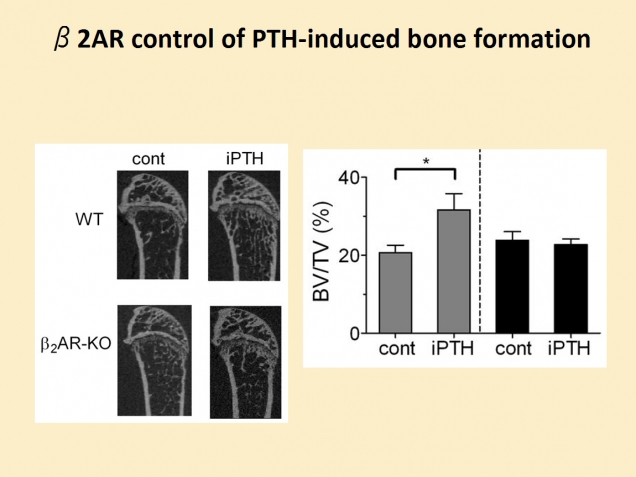
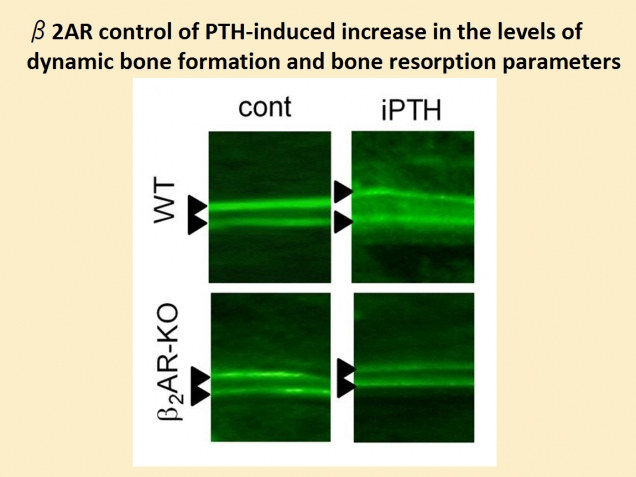
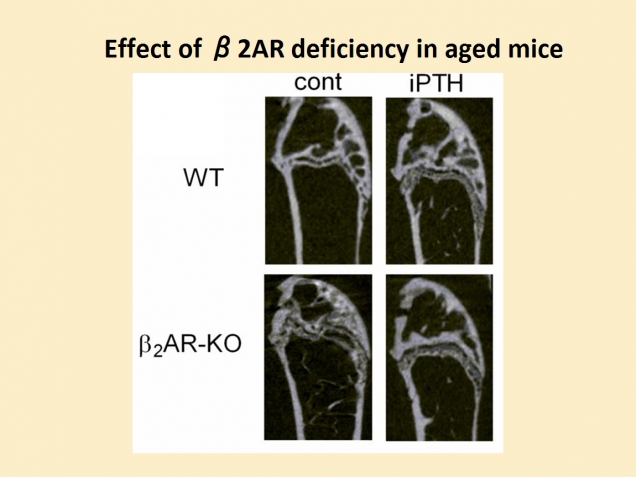
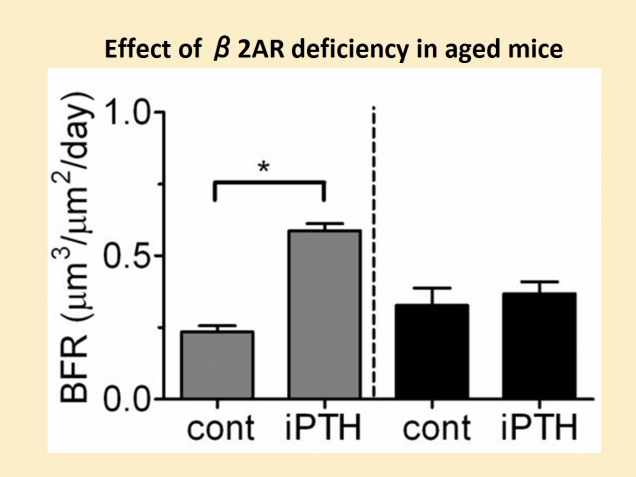
Contact
Masaki Noda, MD, PhD
Professor
Dept Molecular Pharmacology, Medical Research Institute
Tokyo Medical and Dental University
MD Tower 24th Floor, Room 2401
5-45 Yushima 1-Chome, Bunkyo-Ku, Tokyo, Japan 113-5810
Tel/Fax 81-3-5803-4061
E-mail: noda.mph(at)mri.tmd.ac.jp
*Please change (at) in e-mail addresses to @ on sending your e-mail to contact personnels.
Professor
Dept Molecular Pharmacology, Medical Research Institute
Tokyo Medical and Dental University
MD Tower 24th Floor, Room 2401
5-45 Yushima 1-Chome, Bunkyo-Ku, Tokyo, Japan 113-5810
Tel/Fax 81-3-5803-4061
E-mail: noda.mph(at)mri.tmd.ac.jp
*Please change (at) in e-mail addresses to @ on sending your e-mail to contact personnels.

